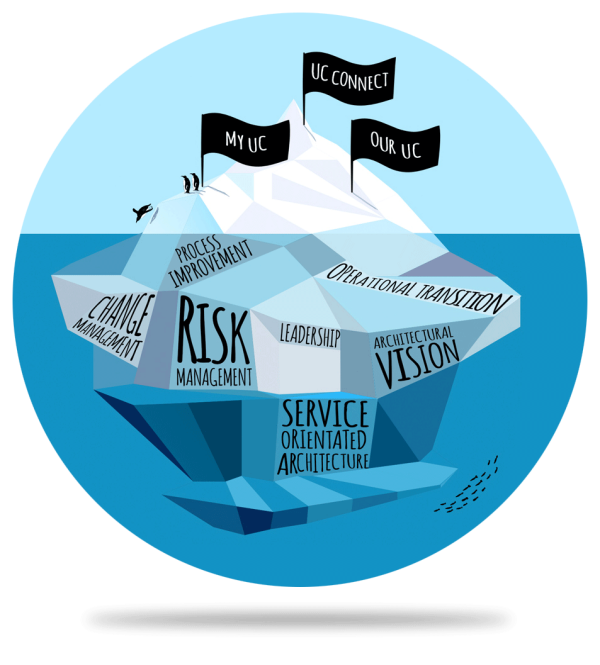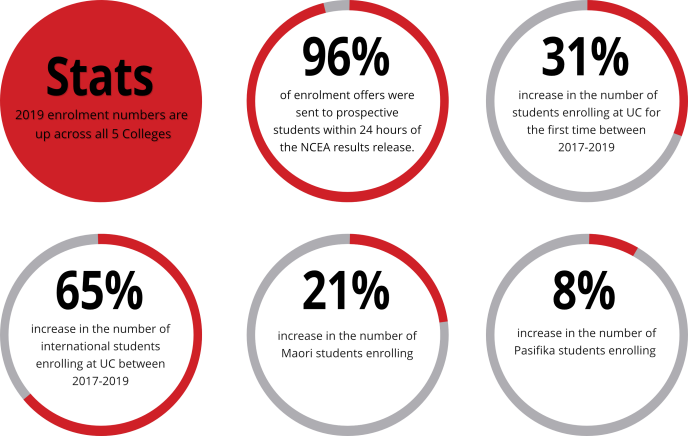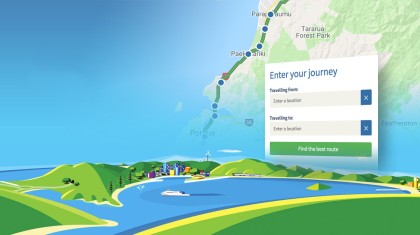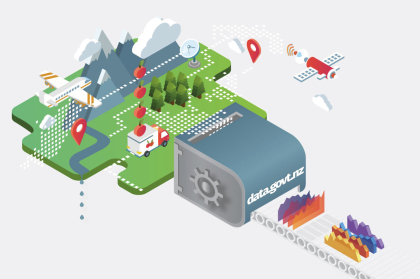The Challenge
Most large organisations initiate major change programmes to address complex systemic problems head-on. When a company, organisation or institution is founded, it starts small. As it grows, it adapts. Systems are added here, new processes there. A handy piece of technology is slotted in, or a new team takes charge.
This reactive adaptation keeps the business alive, typically at low cost.
However, most large organisations will reach a breakpoint, where continued survival and prosperity requires considered, pre-emptive change - the type of change that sets up future success, market security and domain leadership. This kind of change is significantly more difficult, but allows the business to re-evaluate its offerings, and how it will continue to thrive.
By the time this change is needed, the organisation will be faced with problems across multiple fronts. Information silos, complex institutional needs, legacy technology and technical debt are all deeply interconnected. In many cases, this technology is fused to how the organisation functions, and replacing it involves massive upheaval and cost. On top of all of this is a set of human systems and processes developed over the years in response to the changing needs of the organisation. Fixing one problem has knock-on effects across the business.
Change, in this environment, is difficult. Change is scary.
The University of Canterbury
The University of Canterbury / Te Whare Wānanga o Waitaha is New Zealand’s second oldest university and much like any large organisation, there comes a time for transformational future-focused change.
What sets the university apart, is its ability to respond to the changing world around it. UC stakeholders have seen the benefit in upgrading the organisation’s toolsets, and building in-house systems to maximise future adaptation and flexibility.
The UC vision is ‘People prepared to make a difference – tangata tū, tangata ora’. The Student First Programme is contributing to that vision. It is responding to customer expectations for digital services and building competitive advantage with a bold business change programme, designed to modernise the student administration regulations, processes and systems.
The programme itself is like an iceberg - the digital toolset users will see is only a small part of the change taking place, accessing the technical solutions that complement the deeper changes beneath the surface.
Taking on change of this scale is no easy task. Just like any other large organisation, UC faces complex stakeholders, entrenched business rules and processes, organisational silos and legacy technology. Add to that a complex user group spanning domestic and international students, staff and business partners, and a whole industry undergoing a seismic culture shift.

The Changing Face of Education
Today’s tertiary students expect more. Their world is governed by technology. Services and goods are constantly at their fingertips.
Tertiary education providers need to provide a simple, digital student experience if they hope to remain current and desirable in today’s (and tomorrow’s) market. Paper forms, process delays and generic communications are no longer good enough.
Student First Programme

myUC is the new digital portal for delivering administration services to students, including enrolment and course selection.

connectUC is the online enrolment portal for international agents and partners, allowing international students using an agent to enrol more easily.

ourUC (currently under development) is the staff-side portal for administration and student management functions. It creates efficiencies in their daily tasks, streamlining their workflow.

Technically Speaking
The toolsets developed for UC have been created in a service oriented architecture. Developing components in this fashion allows for maximum accessibility, low-risk updates and changes, and a more efficient, more affordable ongoing service model. Pairing this architecture with a single page application and modern user interface further streamlines the system, ensuring a high quality user experience.
Phasing out legacy technology on a large scale is challenging, especially when it is being gradually replaced by a new system. The programme has undertaken considered, incremental change to ensure minimal disruption and risk, while rolling out the various technical solutions. Components of the existing systems were ring-fenced, replaced and removed in a calculated fashion.
The Solution
A Multi-vendor Team
The multi-year programme requires a wide range of skill sets, long term commitment from vendors and buy-in from all stakeholders - internal and external. MadeCurious is part of a multi-vendor team, working alongside the university’s internal ITS team and business units.
MadeCurious has provided a wide range of skill sets to the programme team, improving the enrolment experience for students and staff, maximising operational efficiency internally, and advocating for new ways of working. Over the term of the partnership MadeCurious has contributed a multi-disciplined team of people spanning the areas of business analysis, technical leadership, software engineering, user experience design, user interface development, project management, strategic advice, agile coaching and service design.
Benefits
Despite the logistics, cost and risks, the benefits of digital-first business change that is supported and enabled by a strong vision for the future, are many.
With fundamental elements of the programme now rolled out, the university is already seeing gains in student conversion and retention, securing its future as a leading tertiary institute. The university stands to drastically improve the student experience, making it simple, fast and certain, optimise efficiency and significantly reduce its technical debt. Aligning all systems, future proofing solutions, and eliminating legacy tools are cornerstones of future success.
The Success of SFP


Student's say
Did my @UCNZ application on Friday, got the enrolment offer within half an hour, accepted it, did the StudyLink thing on Saturday and woke up yesterday to find my student loan application had gone through! As of 18 Feb, I'll be studying at @UCNZ - sorry Massey, not!
Curious?
Let's Talk





